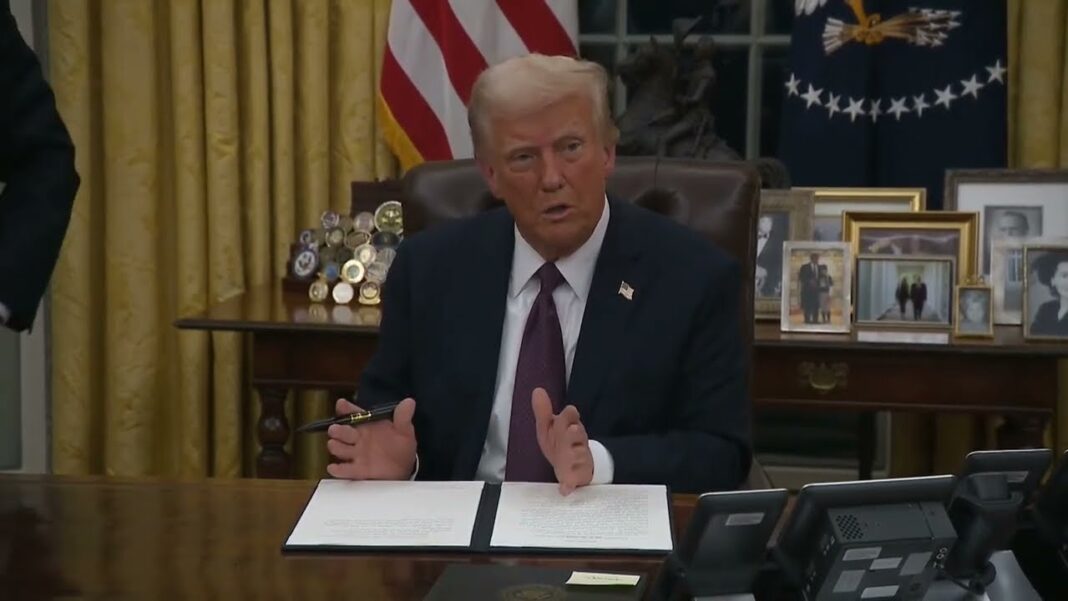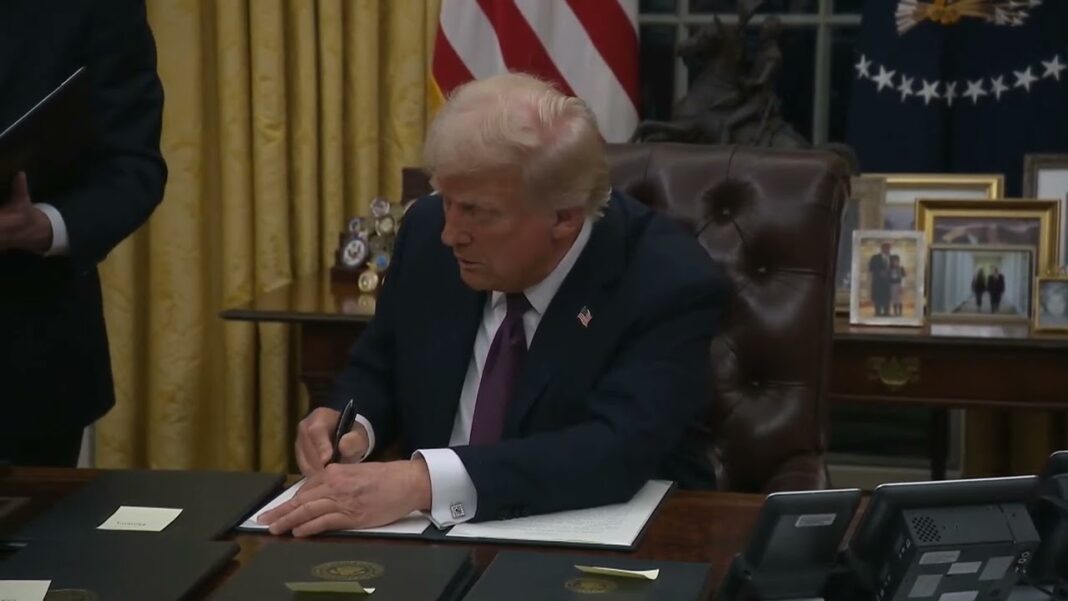The order states that it is the policy of the United States to recognize that there are two sexes only: male and female.
A judge on Tuesday temporarily blocked President Donald Trump’s executive order, which mandated that transgender inmates who identify as women be housed in male prisons and that the government cease funding their access to hormone therapy.
U.S. District Judge Royce Lamberth in Washington granted the temporary restraining order at the request of three anonymous transgender inmates who filed a lawsuit against Trump’s executive action.
Lamberth found the three would likely succeed in arguing the order violates the Eighth Amendment’s protections against cruel and unusual punishment.
Trump’s Jan. 20 order, titled “Defending Women from Gender Ideology Extremism and Restoring Biological Truth to the Federal Government,” requires the attorney general and the Homeland Security secretary to ensure that “males are not detained in women’s prisons or housed in women’s detention centers.”
The order states that the attorney general must ensure the Bureau of Prisons (BOP) revises its medical care policies so that federal funds aren’t spent on “any medical procedure, treatment, or drug for the purpose of conforming an inmate’s appearance to that of the opposite sex.” It also states that it is the policy of the United States to recognize two sexes only: male and female.
“These sexes are not changeable and are grounded in fundamental and incontrovertible reality,” the order states.
Lamberth said that the plaintiffs in the Washington case presented evidence, including various government reports and regulations, recognizing that transgender inmates are at “a significantly elevated risk of physical and sexual violence relative to other inmates” when housed in a facility corresponding to their biological sex, the judge wrote in his ruling.
The plaintiffs also claim that being in a male prison alone will exacerbate the symptoms of their gender dysphoria.
The inmates also presented evidence from a physician explaining that having no access to medications to treat gender dysphoria could cause “numerous and severe symptoms,” Lamberth wrote.






